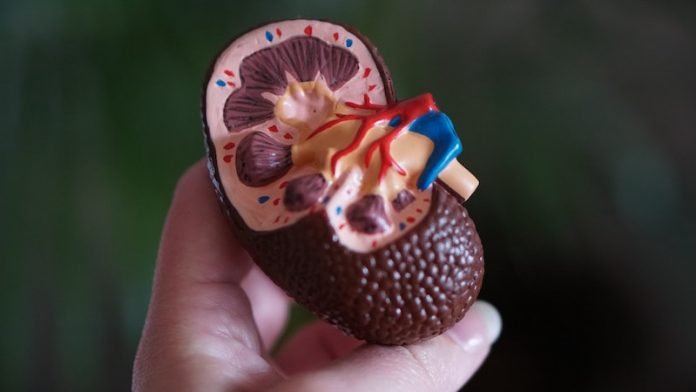
The best way to slow or prevent diabetes-related kidney disease is to try to reach your blood glucose and blood pressure goals.
Healthy lifestyle habits and taking your medicines as prescribed can help you achieve these goals and improve your health overall.
Reach your blood glucose goals
Your health care professional will test your A1C. The A1C is a blood test that shows your average blood glucose level over the past 3 months.
This is different from the blood glucose checks that you may do yourself. The higher your A1C number, the higher your blood glucose levels have been during the past 3 months.
The A1C goal for many people with diabetes is below 7 percent. Ask your health care team what your goal should be. Reaching your goal numbers will help you protect your kidneys.
To reach your A1C goal, your health care professional may ask you to check your blood glucose levels.
Work with your health care team to use the results to guide decisions about food, physical activity, and medicines. Ask your health care team how often you should check your blood glucose level.
Control your blood pressure
Blood pressure is the force of your blood against the wall of your blood vessels. High blood pressure makes your heart work too hard. It can cause heart attack, stroke, and kidney disease.
Your health care team will also work with you to help you set and reach your blood pressure goal.
The blood pressure goal for most people with diabetes is below 140/90 mm Hg. Ask your health care team what your goal should be.
Medicines that lower blood pressure can also help slow kidney damage. Two types of blood pressure medicines, ACE inhibitors and ARBs, play a special role in protecting your kidneys.
Each has been found to slow kidney damage in people with diabetes who have high blood pressure and DKD. The names of these medicines end in –pril or –sartan. ACE inhibitors and ARBs are not safe for women who are pregnant.
Develop or maintain healthy lifestyle habits
Healthy lifestyle habits can help you reach your blood glucose and blood pressure goals. Following the steps below will also help you keep your kidneys healthy
Stop smoking.
Work with a dietitian to develop a diabetes meal plan and limit salt and sodium.
Make physical activity part of your routine.
Stay at or get to a healthy weight.
Get enough sleep. Aim for 7 to 8 hours of sleep each night.
Take medicines as prescribed
Medicines may be an important part of your treatment plan. Your health care professional will prescribe medicine based on your specific needs.
Medicine can help you meet your blood glucose and blood pressure goals. You may need to take more than one kind of medicine to control your blood pressure.
If you care about kidney health, please read studies about vegetables that may protect against kidney damage in diabetes, and findings that weight change may harm people with kidney disease.
For more information about kidney health, please see recent studies about keto diet that may help reverse common kidney disease, and results showing common sleep pills may protect against kidney damage.
Source: NIDDK



